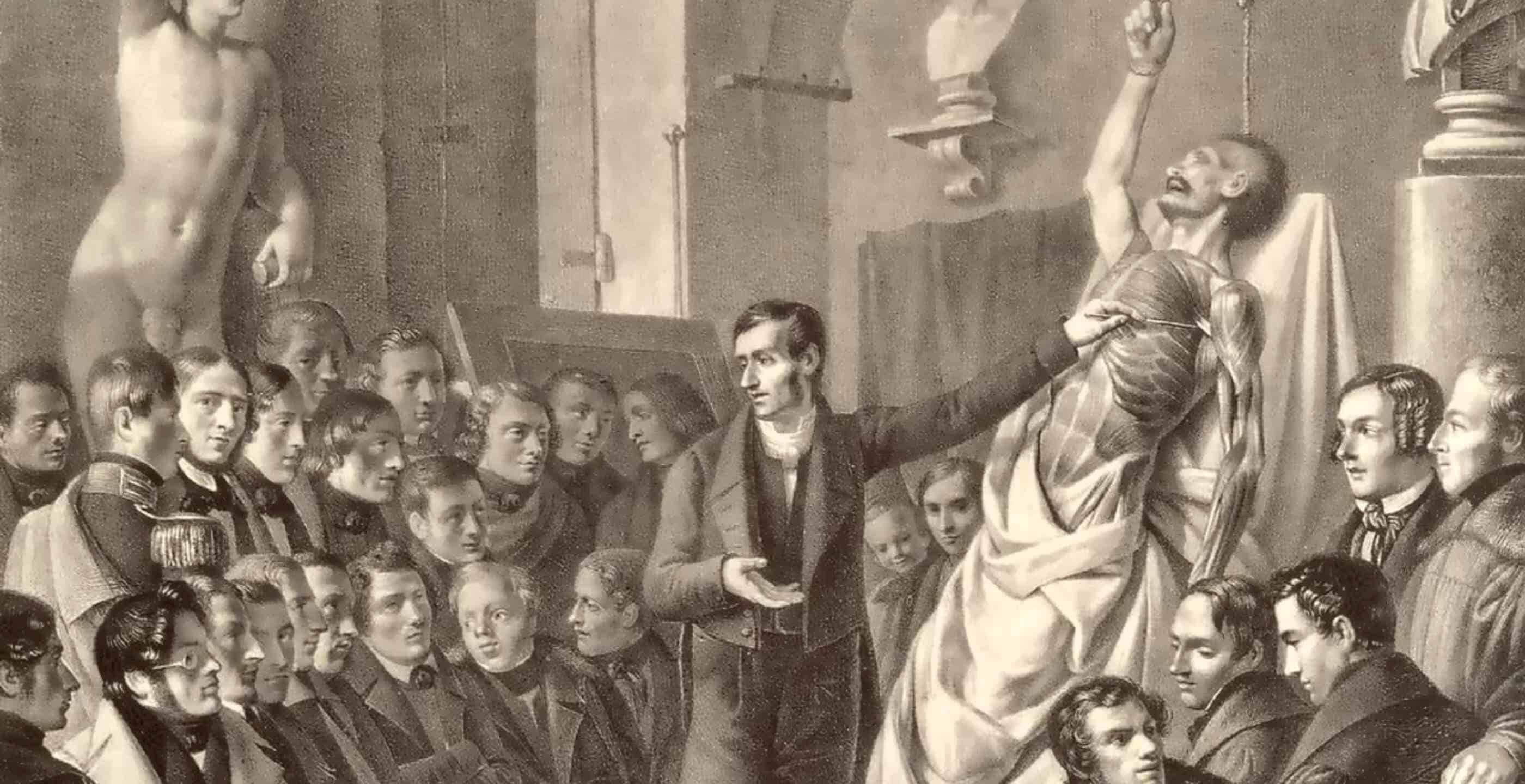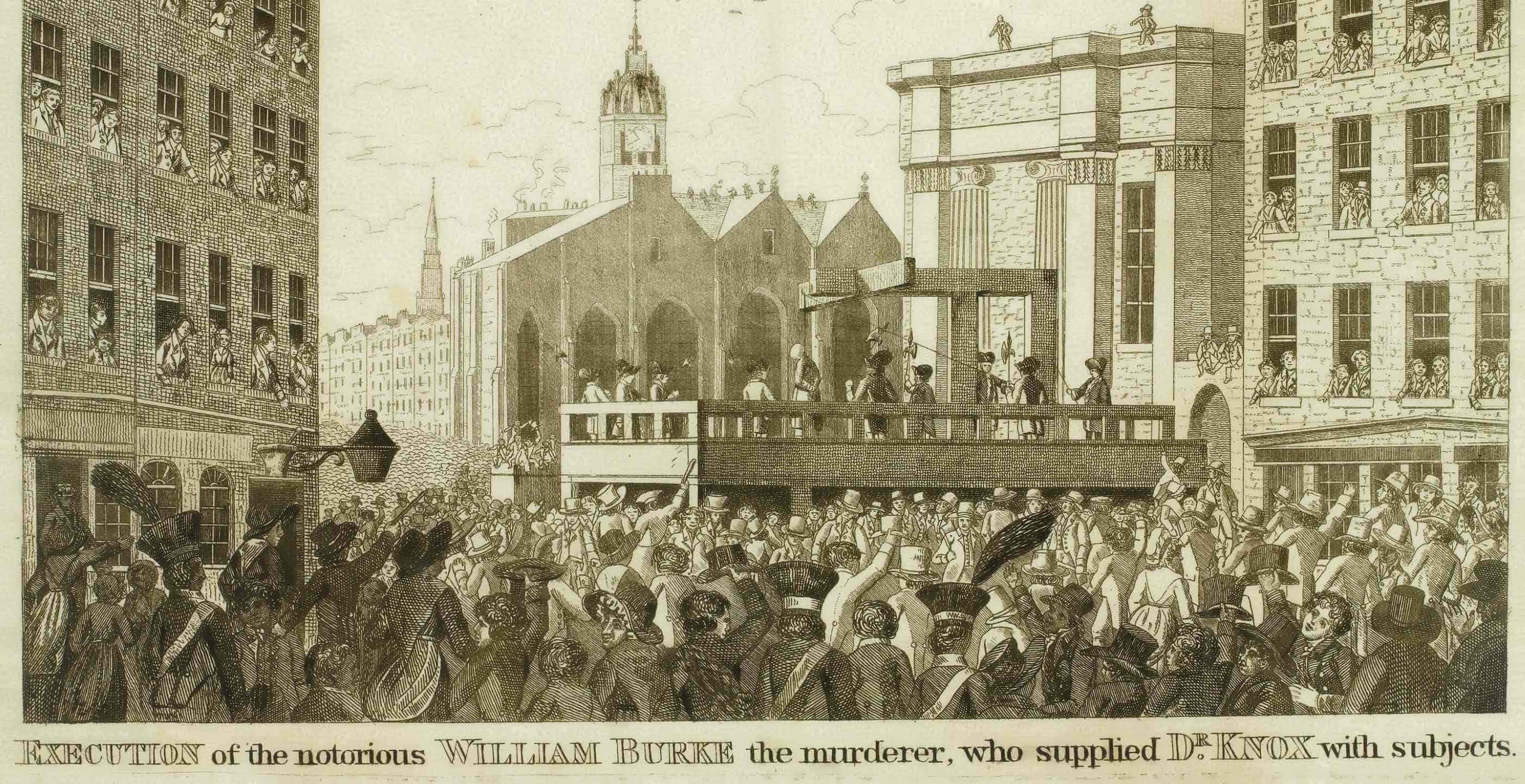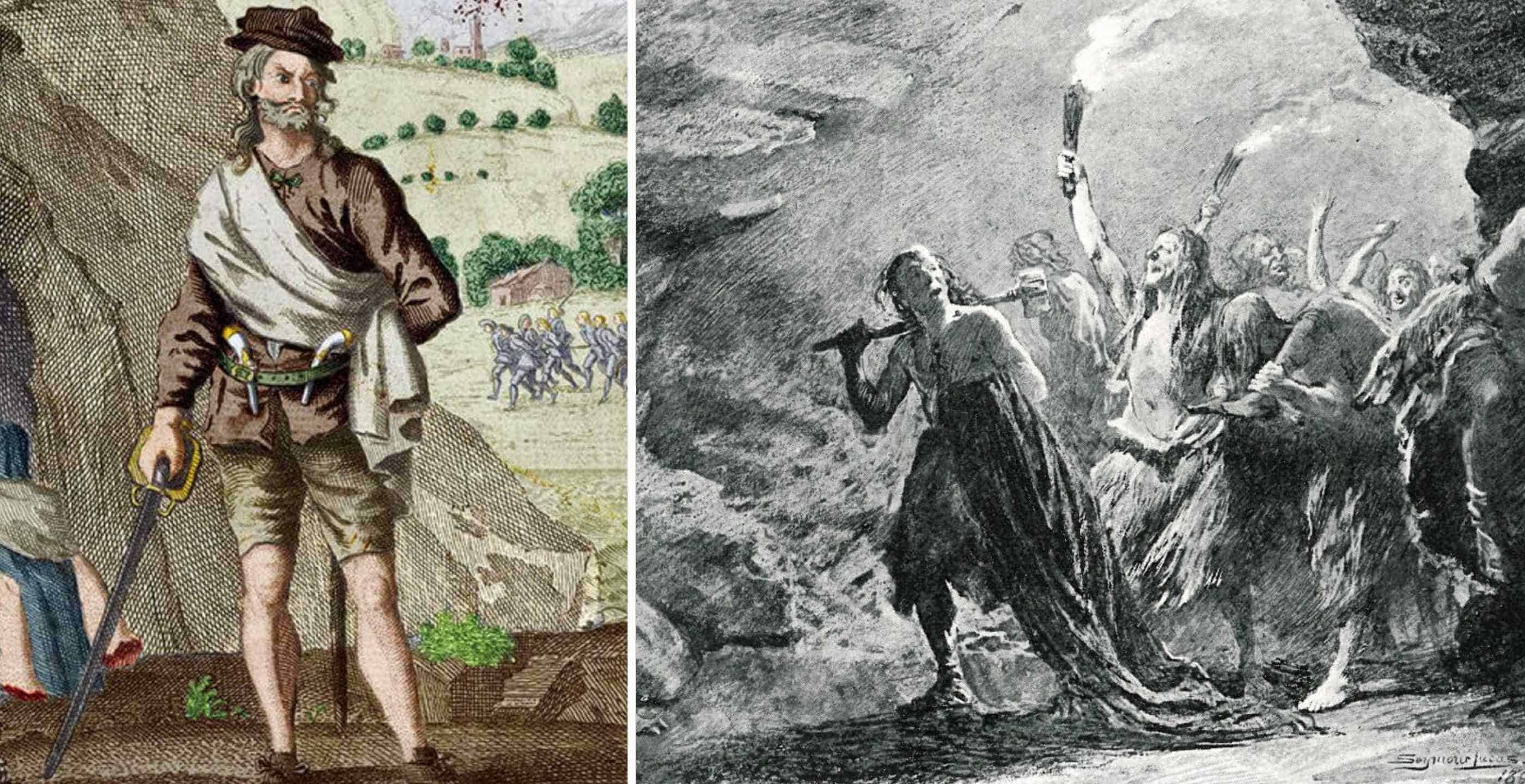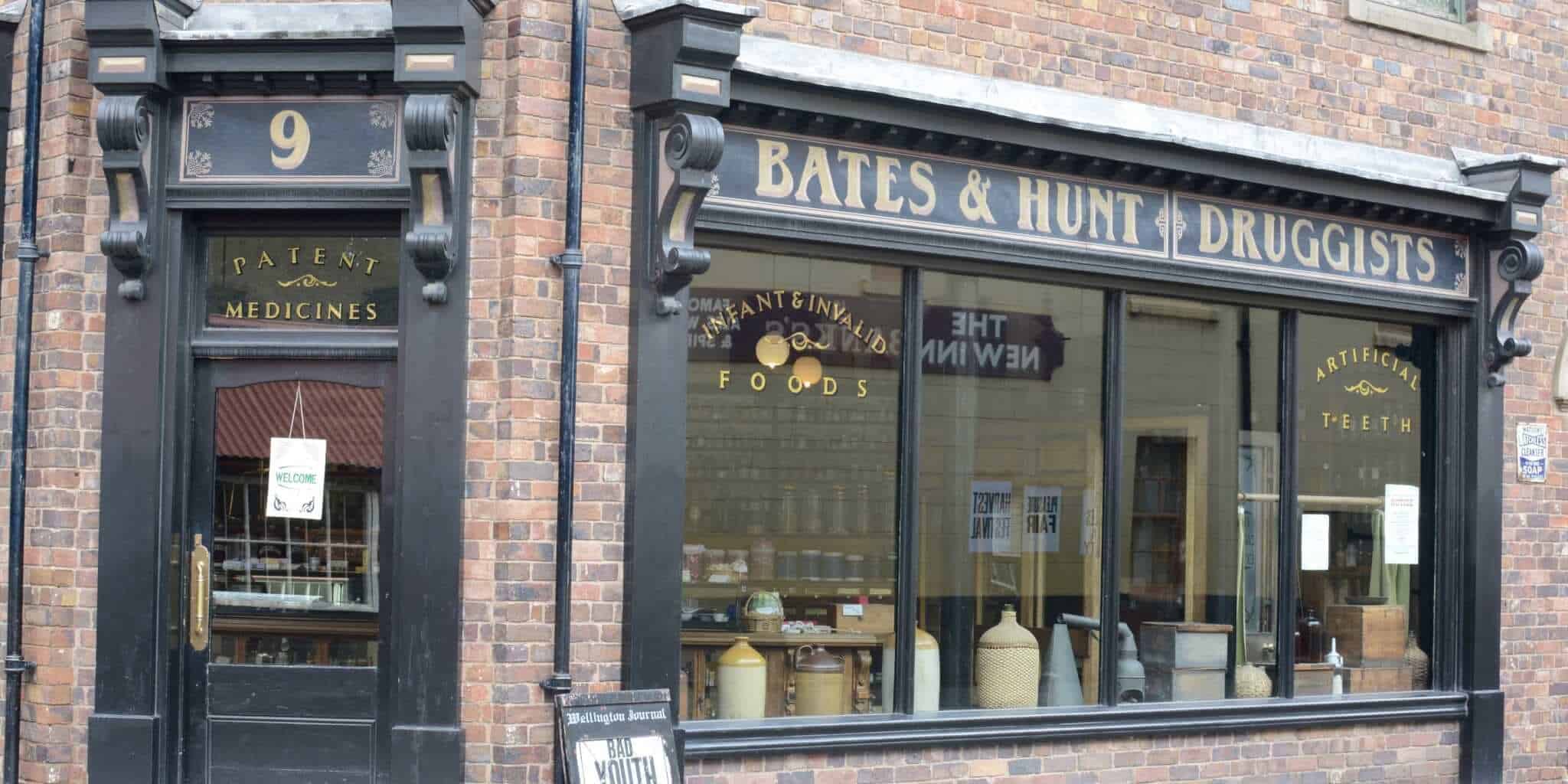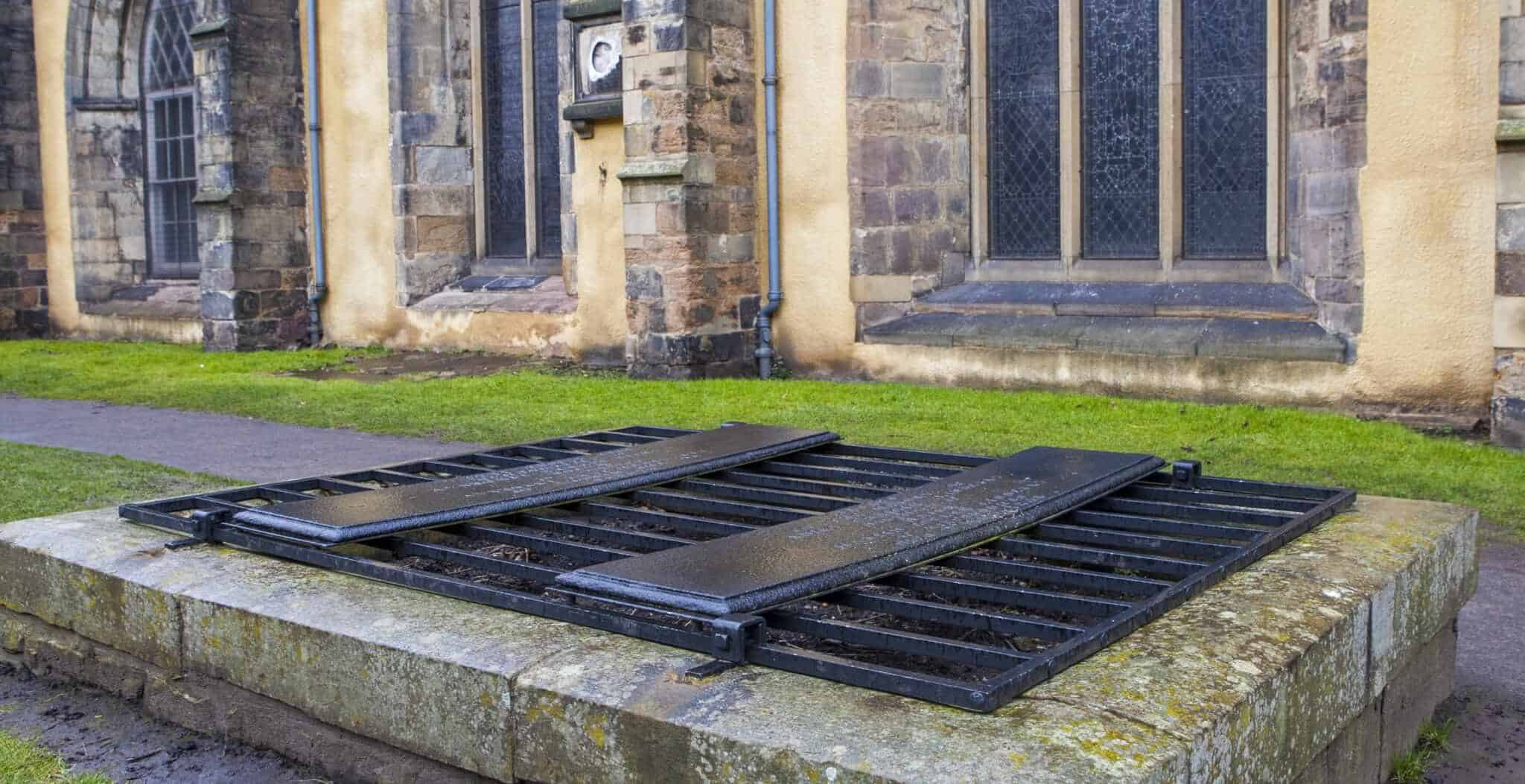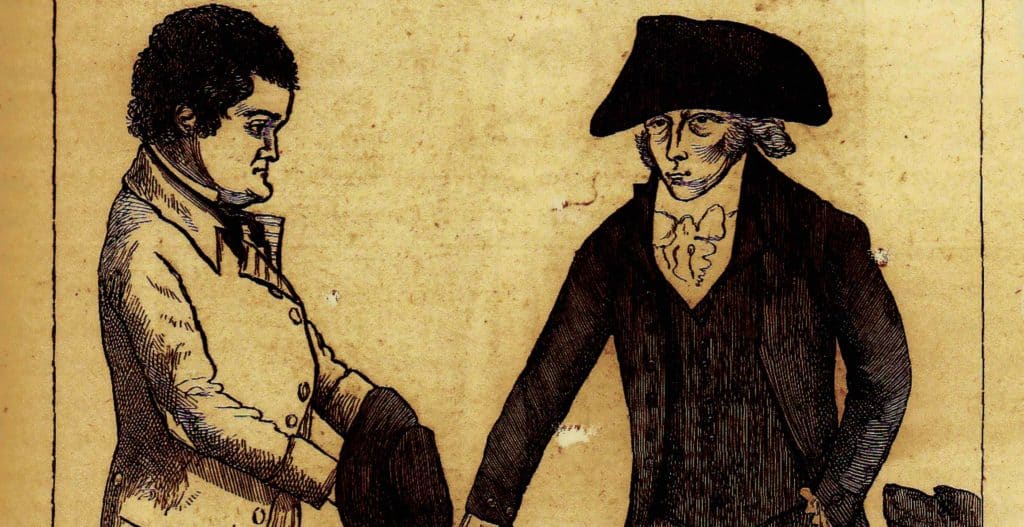Like many other Scottish cities, Aberdeen has many urbanised tinkers who are descendants of the ancient caste of nomadic metalworkers.
These town tinkers had an unholy fear of ‘body-snatchers’ – which were not without reason – and they were not alone in this fear. Their country cousins also feared the ‘Burkers’ as these body-snatchers were called.
Until quite recently, the belief that body-snatching was still rife, made some tinkers steer clear of the college buildings in Aberdeen at night, in case they were to be whisked inside and used for medical experiments!
According to the tinkers ‘Burkers’ were doctors who were helped by medical students called ‘Noddies’.
‘Burkers’ are named after William Burke, who – along with William Hare – murdered several people in Edinburgh in order to sell their bodies to a School of Anatomy in the 1820’s.
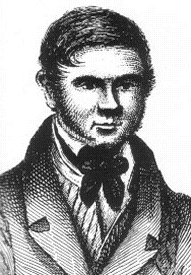
Burke was eventually caught and hanged in 1829, but Hare turned King’s evidence and therefore was released untried.
Legends abound about the Burkers. They were said to have a coach, draped in black cloth and with a zinc floor. The floor had holes in it to allow the blood to flow out freely!
The horse’s hooves were muffled by rubber pads and the ‘Burkers and Noddies’ were dressed like undertakers in top hats, with swallowtail coats and black ties.
The coach was said to roam the surrounding countryside at night in search of tinker’s camps, preferably isolated ones.
One story is told of a poor, travelling tinker couple and their two babies who fell foul of the Burkers.
It was a stormy night and the tinker sent his wife to a nearby Keeper’s lodge to ask for a place to sleep. The Keeper’s wife gave them something to drink and told them to go to the farm nearby, where they would be sure of a welcome.
‘There’s many an old tramping man I’ve seen going up that road’, she said, adding under her breath, ‘I can’t say as I’ve ever seen one coming back!’
As the Keeper’s wife had said, the farmer’s wife welcomed the tinkers, giving them large bowls of tea and promised them beds in the barn. The tinker drank his tea, but his wife decided to keep hers for later, which was wise, as her husband fell into a deep sleep after drinking his and she was unable to rouse him.
This scared her, and she grabbed her children and ran back to the Keeper’s cottage for help.
Shortly after this the Burker’s coach came down the road from the farm. The Keeper grabbed his gun and challenged the four men, dressed in black, riding on top of the coach, to stop.
They refused so the Keeper shot one of the horses and the coach skidded to a halt. Inside lay the naked, dead body of the poor tinker.
The farmer and his wife were later tried and hanged for body-snatching.
Stories like this symbolise the persecution complex which seemed inherent in the tinker’s life. Perhaps the feeling stemmed from the seventeenth century as under Scottish law to be a tinker or gipsy was punishable by hanging!
